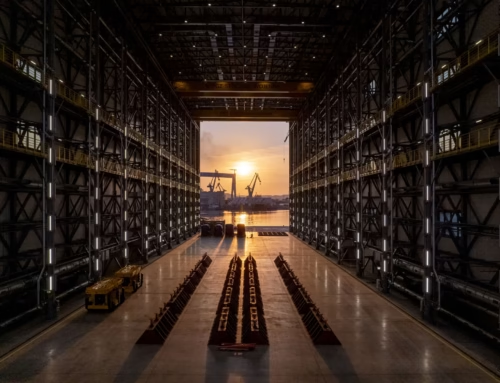KA cover
Autor foto: CPF

Special Paper: Strengthening Ukraine’s Security Assurance: Integration into Europe’s Technological and Industrial Base
November 26, 2024
Author: Kateryna Anisova




KA cover
Autor foto: CPF
Special Paper: Strengthening Ukraine’s Security Assurance: Integration into Europe’s Technological and Industrial Base
Author: Kateryna Anisova
Published: November 26, 2024
Pulaski Policy Paper no. 18, 26th of November 2024
The war in Ukraine has reshaped Europe’s security landscape, highlighting the need for stronger defence collaboration. Ukraine’s battlefield resilience and innovation offer a unique chance for deeper integration into Europe’s defence frameworks, fostering partnerships and advancing shared security goals.
For nearly a decade, EU leadership has introduced innovative measures to enhance collaboration among member states in the defence industry, leveraging financial and regulatory tools. Alongside its partners, Ukraine seeks to share battlefield lessons while fostering interoperability with European nations advancing in defence R&D and manufacturing.
Ukraine urgently needs investments to strengthen its Defence Technological and Industrial Base (DTIB), crucial for resisting and deterring Russian aggression. EU funding mechanisms and cooperation initiatives can improve transparency and predictability in achieving these goals.
In March 2024, the European Defence Industry Strategy (EDIS) and European Defence Industry Programme (EDIP) were announced, outlining mechanisms to integrate Ukraine into the EU defence ecosystem through joint ventures and investments. To facilitate this, Ukraine and the EU should modernise their legal partnership framework, including finalising a new Ukraine-EU Framework Agreement to implement the EDIS-EDIP and updating the Administrative Arrangement with the European Defence Agency (EDA) to deepen collaboration.
Author: Kateryna Anisova, Finalist of the Empowering Young Women Experts in Regional Security and Foreign Policy Fellowship
Kateryna is a recent graduate of the Erasmus Mundus Joint Master’s Degree in Security, Intelligence, and Strategic Studies, provided by the consortium of the University of Glasgow, Dublin City University, and Charles University. With the main focus on European security and defence, Kateryna wrote her Master’s thesis exploring the role of minilateral arrangements in European security architecture. After her studies, she returned to Ukraine to work on the “Supporting Adaptive Defence Reforms” project within the Non-Governmental Union “Foundation for Support of Reforms in Ukraine”.


Views and opinions expressed are however those of the author only and do not necessarily reflect those of the European Union or the European Education and Culture Executive Agency. Neither the European Union nor the granting authority can be held responsible for them.





